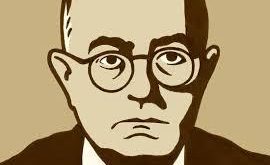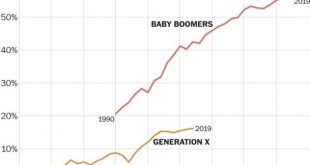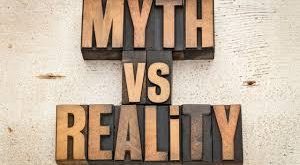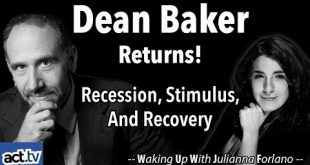from Steven Pressman and RWER issue no.92 Thomas Piketty established his professional reputation by using income tax returns to measure income distribution over long time periods in several nations. Long before Capital in the Twenty-First Century (hereafter C21) appeared, Piketty (2001; 2003; & Saez, 2003) showed that, in many capitalist countries, income flowed to the top 1% (really the top .1%). C21 made two new contributions – a theory to explain this phenomenon, r>g, and a...
Read More »Inequality and luxury
from Lars Syll Thus luxury is being hollowed out. For in the middle of general fungibility, happiness clings without exception to what is not fungible. No exertion of humanity, no formal reasoning can alter the fact that the clothing which shimmers like a fairy-tale is worn by the one and only, not by twenty-thousand others. Under capitalism, the utopia of the qualitative — what by virtue of its difference and uniqueness does not enter into the ruling exchange relationship — flees into...
Read More »Inter-generational wealth distribution
from Girol Karacaoglu and RWER issue no.92 The growing disparity across generations, in their access to material sources of wellbeing such as income and wealth (including housing), has been well documented (Ingraham 2019, Wolf 2018). Figure 2 provides an example referring to the growing disparity of wealth across generations in the USA (Ingraham 2019). As Ingraham explains, “baby boomers – those born between 1946 and 1964 – collectively owned 21 percent of the nation’s wealth by the time...
Read More »An interview with Stephanie Kelton
from Lars Syll Cody Fenwick: What drives the biggest misunderstandings about government debt in our national conversation? Everything is wrong. The way we talk about federal government debt is, from my perspective, we say things like we’re borrowing from China and foreigners. Hillary Clinton said when she was secretary of State that it’s a national security threat. People talk about it representing a liability to all of us, so we hear people talk about “your share [of the national...
Read More »Why COVID-19 is the great unequalizer
from Marshall Auerback and RWER issue no.92 In the daily TV press conferences that New York Governor Andrew Cuomo conducted throughout the spring, he referred to COVID-19 as “the great equalizer.” In the sense that anybody can be infected by the virus, the governor is right. Yet after several months, the data shows clearly the impact is unequally landing on the shoulders of people of color and all but the wealthiest. The health impacts and absence of economic measures to protect them are...
Read More »RWER special issue: The Inequality Crisis
sanity, humanity and science probably the world’s most read economics journalreal-world economics review Please click here to support this journal and the WEA back issues Subscribers: 26,271 subscribe RWER Blog ISSN 1755-9472A journal of the World Economics Association (WEA) 14,468 members, join Sister journals: Economic Thought and WEA Commentaries Issue no. 92 29 June 2020The Inequality Crisis download whole issue The three options: an introductionEdward...
Read More »Structuring globalization to redistribute income upward
from Dean Baker The Washington Post ran a piece on how patterns of globalization may be changed due to the pandemic. It is more than a bit confused in not distinguishing short-term effects from long-term effects and its inability to distinguish between problems caused by fiscal policy and policies caused by the fallout from the pandemic. The headline for the piece on the Post’s homepage is “Covid-19 is erasing decades of economic gains achieved through globalization.” The subhead is “The...
Read More »Economic faculties in turmoil over an editor’s alleged racism and an article’s colonial attitude
from Norbert Norbert Häring A turmoil has engulfed the faculties of economics at the University of Chicago and Harvard. A German economist was first suspended on accusations of racism in Chicago, then rehabilitated. An article in Harvard’s flagship Quarterly Journal of Economics (QJE) is accused of a colonial attitude. The authors justify themselves. The article describes how a German economist, Harald Uhlig,caused a vritable shitstorm, fuelled not least by Paul Krugman and Justin...
Read More »Dean Baker Returns: Recession, Stimulus, And Recovery
Follow on Twitch: https://www.twitch.tv/actdottv Julianna welcomes back recurring guest Dean Baker, macroeconomist and co-founder of the Center for Economic and Policy Research, to discuss how the economic impact of the Pandemic is a growing concern to all sectors of society. And according to Dean, it seems increasingly likely that we are looking at a horrible and prolonged recession, not a complete economic collapse. He’s gives his recommendations for an economic stimulus that helps the...
Read More »Dean Baker Returns: Recession, Stimulus, And Recovery
Follow on Twitch: https://www.twitch.tv/actdottv Julianna welcomes back recurring guest Dean Baker, macroeconomist and co-founder of the Center for Economic and Policy Research, to discuss how the economic impact of the Pandemic is a growing concern to all sectors of society. And according to Dean, it seems increasingly likely that we are looking at a horrible and prolonged recession, not a complete economic collapse. He’s gives his recommendations for an economic stimulus that helps...
Read More » Real-World Economics Review
Real-World Economics Review





